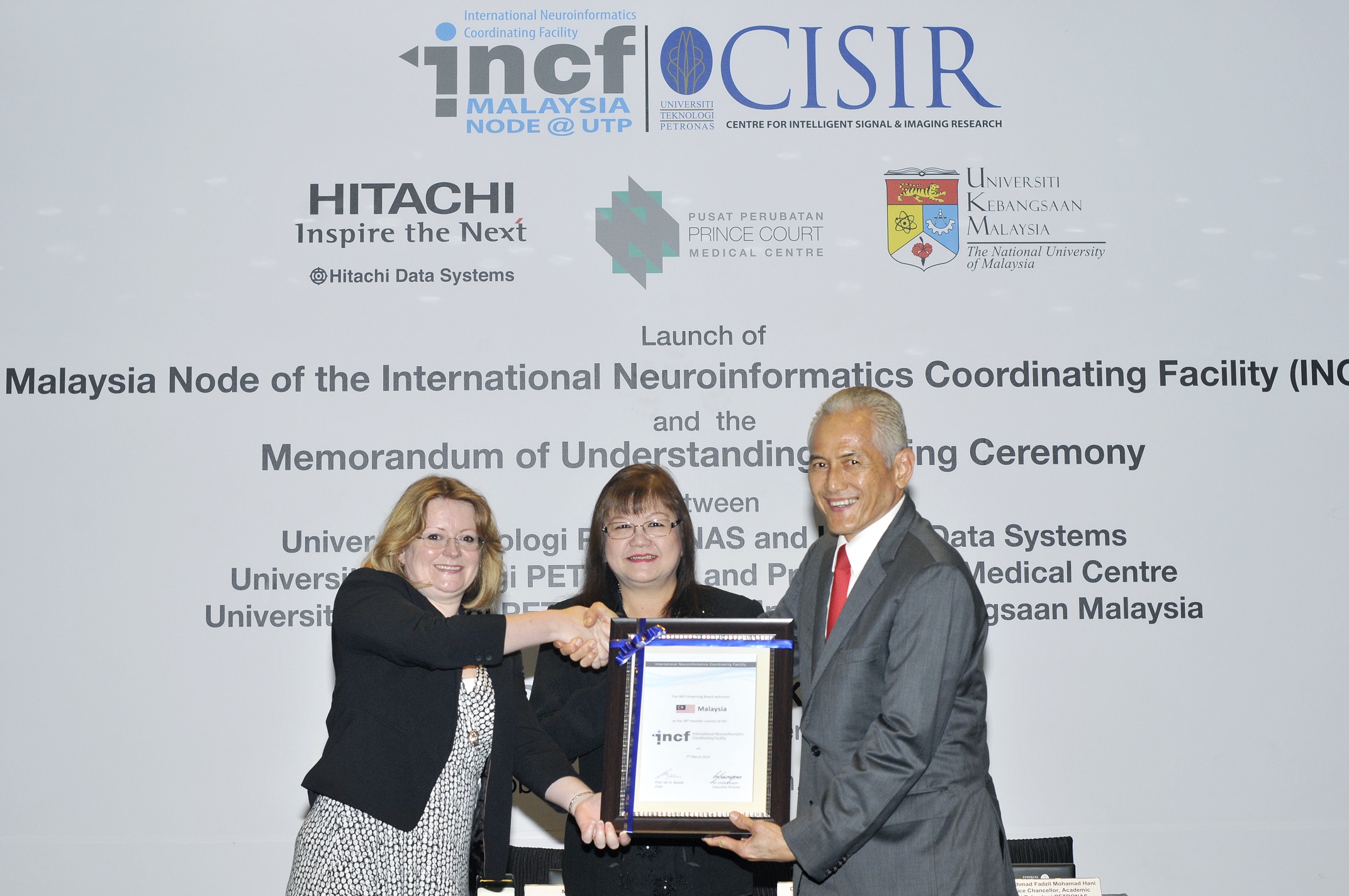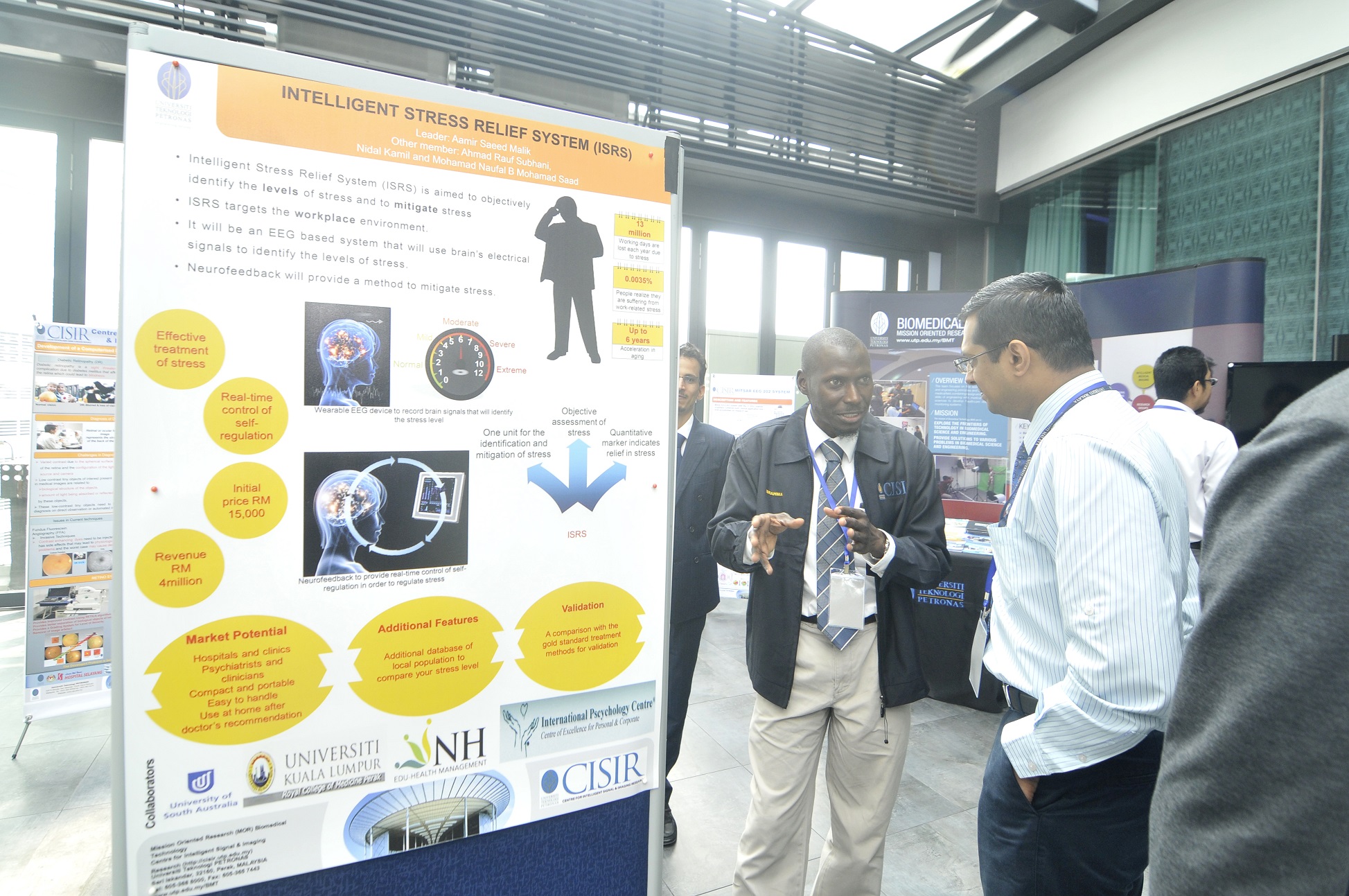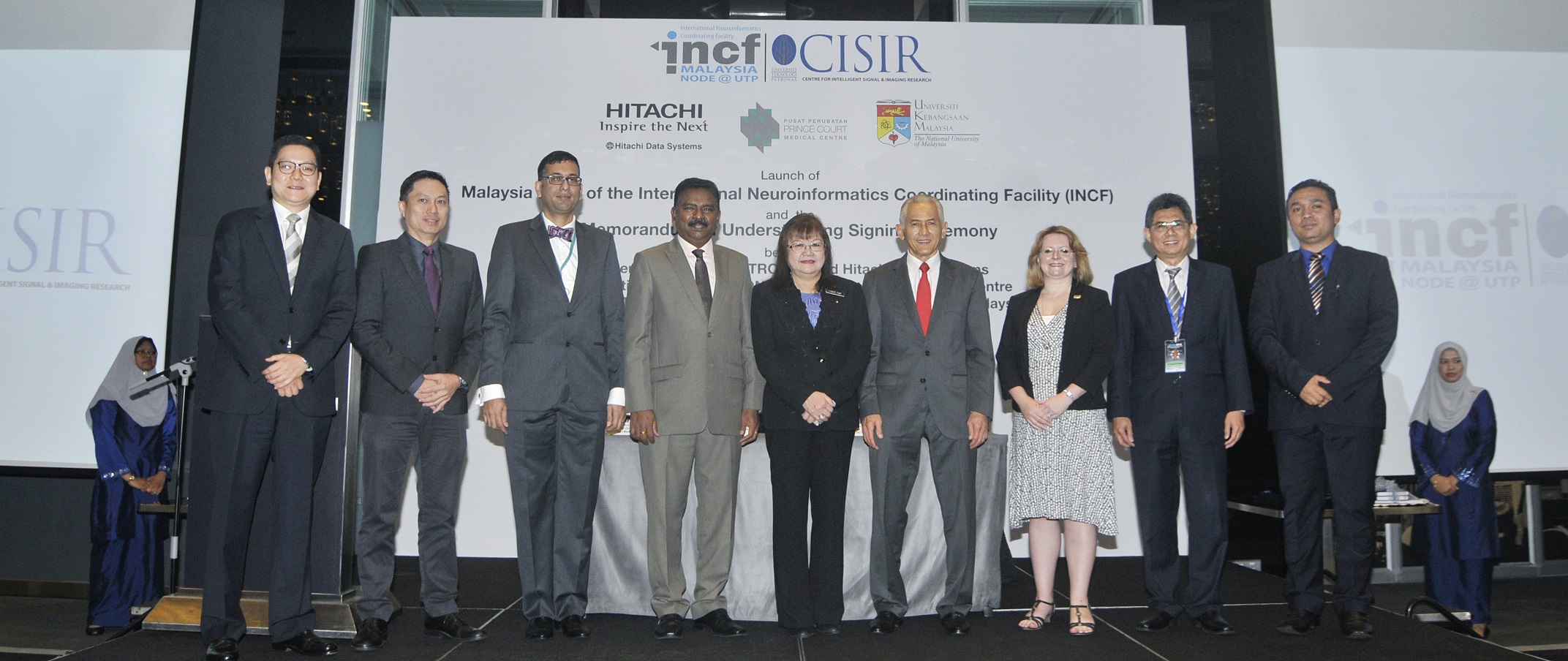Malaysia Joins The International Neuroinformatics Coordinating Facility (INCF), Hosted By Universiti Teknologi Petronas (9 October 2015)
Malaysia has joined the International Neuroinformatics Coordinating Facility (INCF), an international organisation that coordinates neuroinformatics research worldwide and facilitates data sharing and computing resources for neuroscience. INCF was created through the Global Science Forum, after endorsement by science ministers of the Organisation for Economic Cooperation and Development in 2004. The INCF community comprises national nodes from 18 member countries including USA, UK, Japan, France, Belgium, Switzerland and a secretariat based at the Karolinska Institutet, Stockholm, Sweden.
The INCF Malaysia Node was launched today by Deputy Higher Education Minister, Datuk Mary Yap Kain Ching. Also present at the launch were Vice Chancellor of Universiti Teknologi PETRONAS (UTP), Datuk Ir. (Dr) Abdul Rahim Hashim, Executive Director of INCF, Dr. Linda Lanyon, INCF Japan Node Head, Professor Yoko Yamaguchi and representatives from INCF Australia, Hitachi Data Systems Hong Kong (HDS) and Prince Court Medical Centre (PCMC).

The INCF Malaysia Node will be hosted by UTP at the Centre for Intelligent Signal & Imaging Research (CISIR). This makes CISIR UTP the only Malaysia node of INCF. The Node was founded with strong support from researchers at Universiti Sains Malaysia (USM), Universiti Kebangsaan Malaysia (UKM), Universiti Malaya (UM) and the Malaysian Society of Neurosciences (MSN).
“Today is indeed a historic occasion for UTP. Being given the opportunity to host the Malaysia Node of INCF through its CISIR, is a celebrated achievement for UTP. As a rather young university, expanding the frontiers of knowledge and championing the development of technology to address society’s imperative challenges continue to be our aspiration. It is therefore a remarkable opportunity for us to be part of the INCF,” said Datuk Abdul Rahim.
CISIR was appointed in 2014 as one of 14 national Higher-Institution Centre of Excellence (HI-CoE) by the Ministry of Higher Education with the mandate to pursue trans-disciplinary research at the intersection of neurosciences and biomedical signal and imaging. CISIR has been active in biomedical research since 2008 in partnership with a network of Malaysian and international collaborators from Japan, France and Germany.
INCF Malaysia Node Head, Professor Ir. Dr. Ahmad Fadzil Mohd Hani said, “Understanding the brain is one of the scientific grand challenges of our time. Neuroinformatics is a new approach to handling the complexity in brain studies. Biomedical engineers, computer scientists, mathematicians, data scientists, physicists, biomedical engineers, statisticians and clinicians work together to apply big data analytics and computational neuroscience to extract insights from experimental studies by neuroscientists and geneticists. Neuroinformatics integrates information across all scales of the brain, from genes, cells to functional networks and behavior to develop a complete picture of the brain system.”
INCF Malaysia Node will kick off with research projects to improve the outcomes of patients with brain trauma, dementia and epilepsy. This collaboration will involve doctors, neuropsychologists and engineers from Malaysia and will be part of a larger European Commission led study, CENTER-TBI. INCF will provide assistance through sharing of expertise in big data management and infrastructure, data standards, clinical protocols and will link Malaysia to global neuroscience experts from the Japan Brain/MINDS project and the European Human Brain Project.

Professor Fadzil, who also heads UTP CISIR said, “We want our research efforts to directly benefit a large segment of Malaysian society. This is why we chose brain trauma as our first project, as it is the fourth leading cause of death and contributes 11.37% of all Emergency Room cases in the country. Brain afflictions like trauma and dementia are a hidden epidemic – they have a debilitating impact on quality of life and cost us at least USD$4billion in economic losses but there is very poor awareness. Malaysian clinicians in brain sciences are well-respected globally for their competency and they are very keen to collaborate.”
On the future plans of INCF Malaysia Node, Professor Fadzil said, “We have to focus our research in these early stages to deliver outcomes that the Malaysian people and the Ministry can recognise. However, our vision is to contribute towards education and the creation of new knowledge and applied technologies in brain sciences. Neuroinformatics can be a platform to unite researchers in brain sciences and practitioners in brain health because these fields are ultimately data-driven. The need to integrate and analyse data from various studies and modalities is ever present and ascending in importance, be it in science for the development of new insights or in the clinic to prognosticate and assess patient outcomes. The INCF Malaysia Node can expand on the efforts of Malaysian neuroscience pioneers like MSN & USM, to bring in fresh insights and global partners.”
INCF Executive Director, Dr. Linda Lanyon said, “INCF is very pleased to welcome Malaysia as our newest member. We are very happy with the energy and enthusiasm in the Malaysia Node and look forward to fruitful collaborations”.
After the launch, Datuk Mary also witnessed a memorandum of understanding signing ceremony between UTP and its partners from HDS and PCMC for collaborative works in the general area of biomedical technology.


